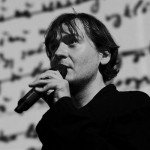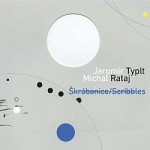Writer, poet, artist, curator, book editor. Winner of the Jiří Orten Award (1994). He was born in Nová Paka on 25 July 1973.
Jaromír Typlt
| Title | Publisher | Year | Selected published translations | Awards |
|---|---|---|---|---|
| Škrábanice / Scribbles | Polí5 | 2014 | ||
| Ladislav Zívr (Ladislav Zívr) | KANT | 2013 | ||
| Squeeze (Stisk) | Torst | 2007 | ||
| that - the - un - struck (že ne zas až) | Host | 2003 | ||
| Red-Hot Ice Floe (Rozžhavená kra) | Votobia | 1996 | ||
| Opposite of Headlong Rush (Opakem o překot) | Host | 1996 | ||
| Earlier than Afterwards (Dříve než vzápětí) | edice Tvary | 1994 | ||
| Lost Inferno (Ztracené peklo) | Český spisovatel | 1994 |
1994 Jiří Orten Award |
|
| Fighting the Family Tree (Zápas s rodokmenem) | Pražská imaginace | 1993 | ||
| Movable Thresholds of Temples (Pohyblivé prahy chrámů) | Mladá fronta | 1991 | ||
| Concerto grosso (Koncerto grosso) | Mladá fronta | 1990 |
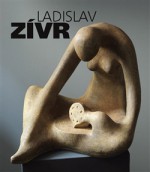
Ladislav Zívr
Ladislav Zívr
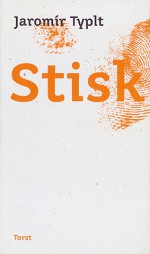
Squeeze
Stisk

that - the - un - struck
že ne zas až
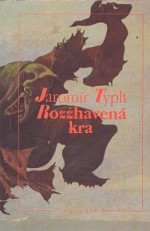
Red-Hot Ice Floe
Rozžhavená kra
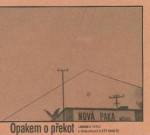
Opposite of Headlong Rush
Opakem o překot
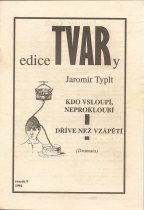
Earlier than Afterwards
Dříve než vzápětí

Lost Inferno
Ztracené peklo
Zápas s rodokmenem
Jaromír Typlt
Fighting the Family Tree
Zápas s rodokmenem
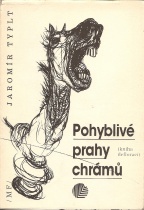
Movable Thresholds of Temples
Pohyblivé prahy chrámů
Koncerto grosso
Jaromír Typlt
Concerto grosso
Koncerto grosso
| Award | Year | Country |
|---|---|---|
| Jiří Orten Award | 1994 | Česká republika |
Praise
In his prose Typlt concentrates on unfolding events and passing details without placing them within a frame, which makes orientation difficult and ensures maximum vigilance. (…)The focus on detail is typical; here, there are alternating passages depicting visual, auditory and tactile sensations (synesthesia), which together with the minimum of coherent descriptions provides the reader with unusually wide scope for filling in the blanks.
—Petr Andreas
iLiteratura
He graduated in Czech language and philosophy from the Arts Faculty of Charles University in Prague and worked as a curator in smaller galleries. He made his debut with the poetry collection Koncerto grosso (Concerto Grosso, Mladá fronta, 1990) when he was still at grammar school, where he was influenced by the impact of rock music – indeed, the collection had the subtitle “a heavy-metal mass in F minor”. This was followed by the prose work Pohyblivé prahy chrámů – Kniha deflorací (Movable Thresholds of Temples, Mladá fronta, 1991). For the collection Ztracené peklo – dryjáky z magmatu a černé žluči (Lost Inferno, Čs. spisovatel, 1994), in which he also presents some older poems from unpublished collections, he was awarded the Jiří Orten Award.
The prose work Opakem o překot (Opposite of Headlong Rush, Host, 1996), composed as a surrealistic reverie, is set in his home town of Nová Paka “because in this region only one hope remains – that you find yourself in a place where there is nothing to look for”. In his prose Typlt revives the legacy of another writer born in the area, Josef Kocourek, whose literary legacy is partially incarnated in the character of the poet Věnceslav Sarge. For the poet and for the author himself, he is engaged in a conversation with the town of Nová Paka, which is also pictured on the cover. Typlt neatly fits together the literary and artistic aspects of his books, which are often brought out as fine-press publications at his own expense. These include the title Michal přes noc (Michal Through the Night, 1996). With Jan Měřička he then did Hlavolomy (Braincreasers, 2000), Zajetí/Fogság (Captivity, 2001), Až tě (Only You, 2002) and Sběř (Scrap, 2003). His collaboration with the artist Jan Měřička first resulted in limited numbers of books printed for exhibitions; Typlt and Měřička then brought out the collection Že ne zas až (That-the-un-struck, Host, 2004) for a wider circle of readers. The author recalls how they created a set of loose prints with texts thus: “When I finished the cycle of texts Vniveč (To Naught), I had the nagging feeling that I didn’t want to go down the usual road of bringing them to readers by trying to get them published by some publishing house. And it was then, in 1999, that Jan Měřička and I first began to talk about doing a book together. When it dawned on me that what interested me most about Měřička’s etchings from that time was the curious way they are full of holes, their tattered structures, I very quickly connected this with the “holey” texts in Vniveč. What I mean is that it also includes a huge number of empty spaces, the texts seem to be ragged and fragmented, and in many places they directly cry out for something from outside to intervene in them.”
The anthology Stisk (Squeeze, Torst, 2007) contains a number of forms from different genres, from prose, poems, diary reflections and essays, with the author freely passing between them, even within the confines of a single text. As Petr Andreas writes in a review of the book on iLiteratura.cz, “The focus on detail is typical; here, there are alternating passages depicting visual, auditory and tactile sensations (synesthesia), which together with the minimum of coherent descriptions provides the reader with unusually wide scope for filling in the blanks. This makes the subjective investment of content by the reader, if he is willing to provide it, particularly important. Wide scope is given to sensations through which the passing of time manifests itself.”
